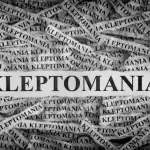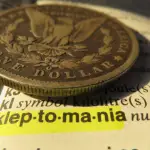You’re stuck in a traffic jam, your child is not doing well at school, there are no tickets available for a show, there is a delay in receiving your mail, your wi fi is slow; whatever the problem there is always someone to vent your anger on. That someone is, in most parts of the world, the government of course. You could even blame a super-hot or super cold or super rainy day on the government.
Who is this elusive creature -the government – where did this popular fall guy come from, that is the question?
FACT 1: As long as human beings were nomads wandering around in search of food, pastures and water, the concept of governance did not exist. Nomads lived in families. Group decisions were taken by the heads of the families jointly. As nomadic groups became larger one of the heads of the families would emerge as strongest and be conferred the title of chieftain. The chieftain had very little power and this leadership could not be equated with governance. Such groups are referred to as pre political groups and can still be found in the Amazonian jungles or among the tribes of the Upper Nile.
FACT 2: It was the rise of agriculture and the invention of irrigation that first led man to institute the earliest forms of administration and control. In one of the earliest civilizations, Sumer, a central authority evolved to control the flow of the waters of the Tigris Euphrates, so that farms downstream as well as upstream could be watered.
FACT 3: As agriculture flourished, villages began to prosper and this invited nomadic raiders. The defence of the village needed to be coordinated under a single leader. This was the dawn of the ‘rule of one’ or monarchy.
FACT 4: Defence necessitates an army of soldiers, who need supplies, transport, animals and weapons. In order to pay for this taxes and tax collectors came into being. The leader was now assisted by a council. As time and progress marched along the roles of the council members became clearly defined. A council comprised priests, farmers, soldiers and tax collectors.
FACT 5: As the villages continued to prosper the territory under the leader and the council expanded and the first cities emerged. Protection of the cities was the responsibility of the leader who was then elevated to divine status. The concept of ‘king’ emerged.
FACT 6: The bureaucracy developed as civilized societies were constantly being invaded by the nomads. Civilized societies existed all the way from China to Britain. Nomads from the Steppes were excellent horsemen and raided these civilizations regularly. Stronger governments were required to protect these civilizations. This led to the rise of the bureaucracy.
FACT 7: The Greek city states ‘polis’ were self- governing communities. Athens was the first real democracy. In return for pitching in to defend the polis the working people of the polis, the farmers and the artisans insisted on having a say in the governing of the polis.
FACT 8: Athens was also the seat of political discussion. The words most commonly used to describe governments even today have all originated from Greece. The connotation of these terms is the same today as it was 2000 years ago in Greece. These terms include monarchy, oligarchy and democracy.
FACT 9: Aristotle championed aristocracy, the rule of a few, but the best few. He expounded the theory that the leisured class was the most knowledgeable and had the most time to conduct the business of government. However the best often avoided the monotony of governance. Instead unjust people or the ‘worst’ as Aristotle described them took over governance. He called this oligarchy.
FACT 10: The term republic comes from the Roman res publica. The Constitution of Rome was described by the Greeks as a mixture of monarchy, aristocracy and democracy. The Roman standard ‘The Senate and the People of Rome’ describes the sharing of power between the people and the privileged few. Elections decided who would hold power. The first political parties appeared in Rome.









Leave a Reply